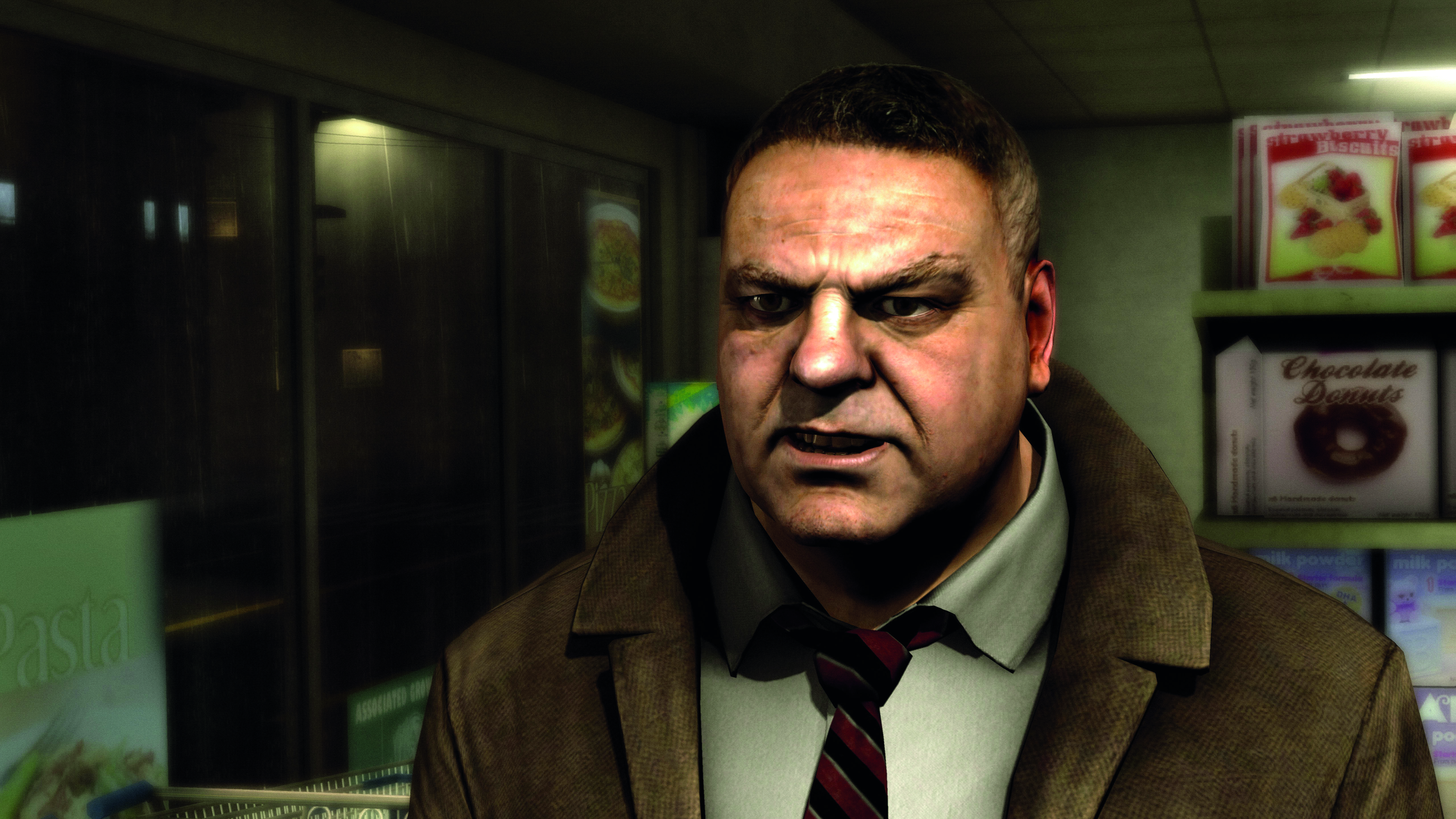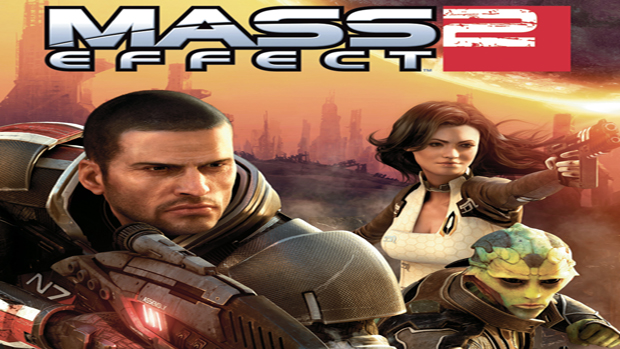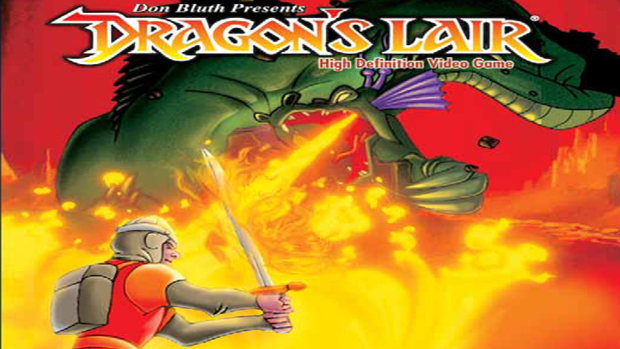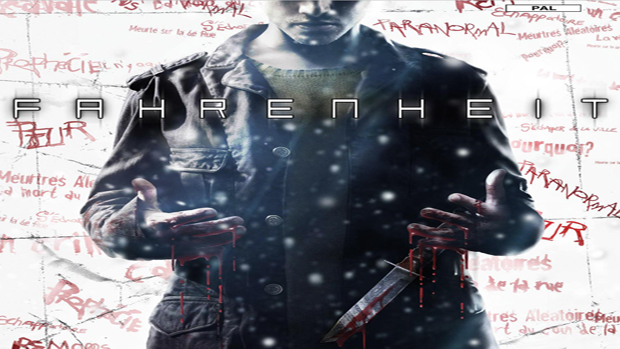GamesRadar+ Verdict
Pros
- +
One of the most stunningly believable game worlds to date
- +
It's genuine emotionally affecting at times
- +
You'll be engrossed
Cons
- -
It's badly written
- -
It feels a little smug at times
- -
You'll hate it if you're an action junkie
Tread carefully if you're particularly sensitive to spoilers though. We've tried to avoid them, but there are one or two unavoidable plot points touched upon within.
Easily the most blurred combination of movie and game to date, Heavy Rain is a very interesting prospect indeed in this age of sprawling video game mythologies and high def cut scenes. But “interesting” covers a wide range of emotions. Which ones does Heavy Rain evoke? Read on and we’ll tell you. But first, a large disclaimer.
Large disclaimer
Your appreciation of what Heavy Rain does will depend on what you like to take away from your video games, and in fact your entertainment media in general. Depending on your preferences you may gush uncontrollably over the things it does well, but by the same note they might leave you stoney cold. So we’ve devised the following multiple choice quiz for you to fill in. Just tick the boxes that sum up your reaction to the following items and we’ll explain the results in a moment. And remember, don’t use a permanent marker or you’ll bugger up your monitor.
What is your gut response to this screenshot?
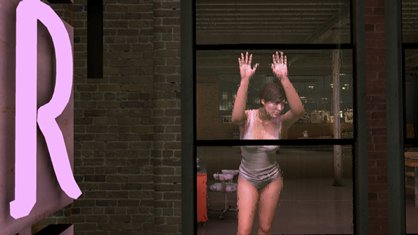

How would you feel if presented with the following as part of a tutorial?
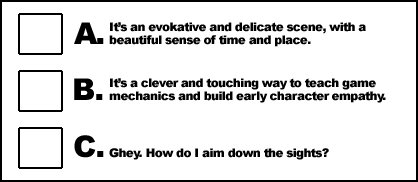
If you ticked mostly A and B, you’ll appreciate what Heavy Rain does. If you ticked mostly C, move on. There’s nothing to see here.
So what the hell is it?
Glad you asked. With so many preconceptions already gathered around the title (“It’s the future of games!” “It’s the return of point and click adventures!” “It’s the longest QTE in history!”) we need to start by clearing up exactly how Heavy Rain works.
Heavy Rain is a gritty piece of interactive narrative following a dark and fairly brutal murder mystery story set in 2011. You’ll alternately play as several different characters involved in various aspects of the overall plot, and your actions will shape the events of the current scene, subsequent scenes, and the overall story. These changes are achieved via branching dialogue trees, the provision of different solutions to problems (sometimes including the option to walk away altogether), and your success or failure during key action sequences.
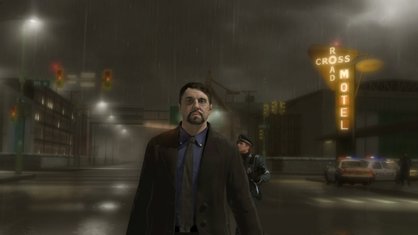
Everything (and we mean everything) bar physically moving your character around the environment is controlled via simple button presses, small turns of the right analogue stick, and shakes of the Sixaxis. QTE prompts flash up on screen whenever you pass an object or person that can be interacted with or whenever the story throws up a set-piece event, and you follow them accordingly. Or not.
You definitely can’t change the way things unfold with complete freedom, but when different approaches are possible you can often radically change the way a scene plays out, even if your actions don’t change the end result. For a simple example, check out two different ways we tackled a convenience store hold-up with private eye Scott Shelby.
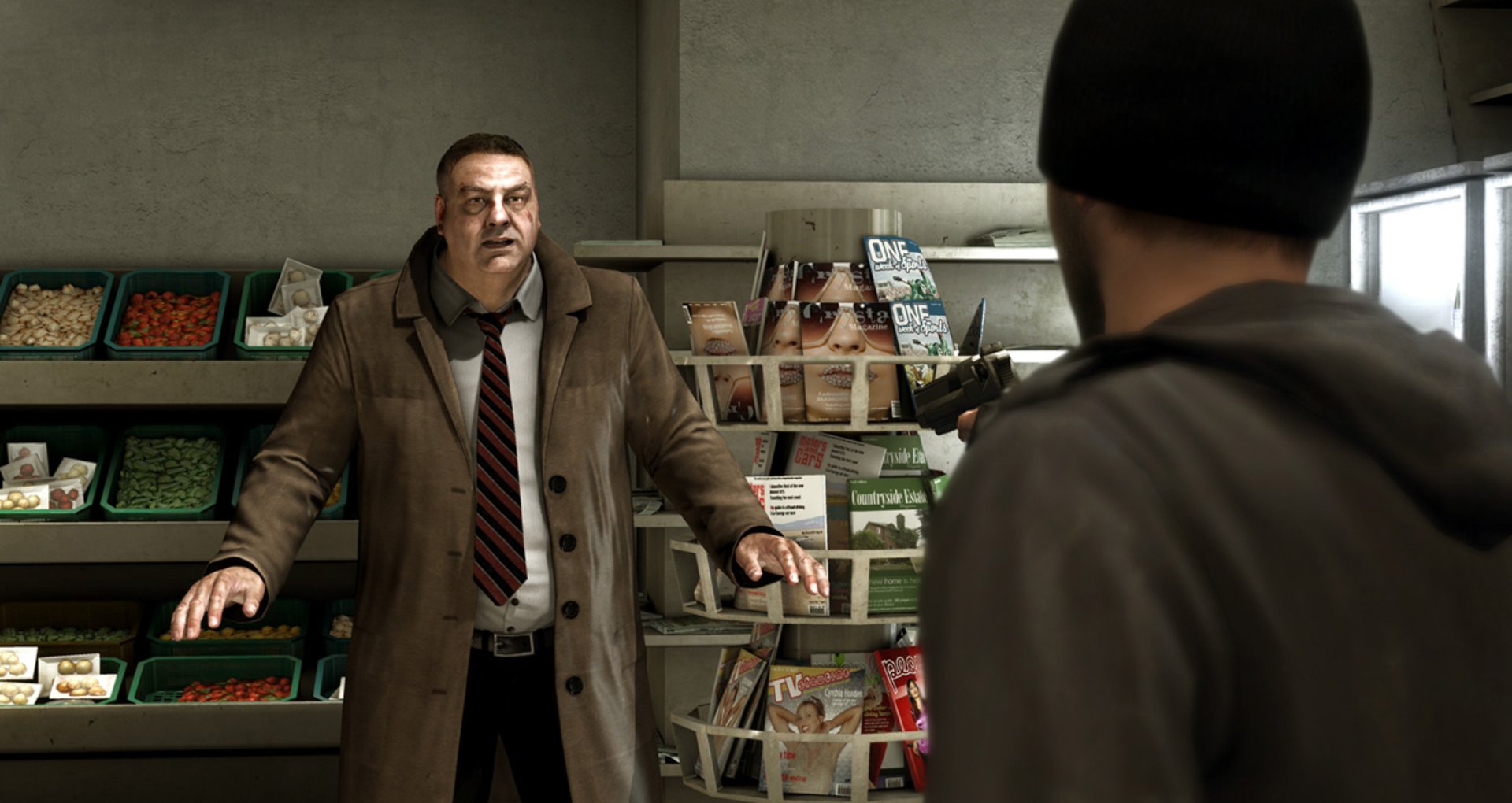
One approach led to a quick and easy victory, while the other led to a botched confrontation. We could also have kept our hands in the air (dropping them was a manual action, performed by letting go of L1 and R1) and talked the robber into leaving. Regardless of personal success or failure, Shelby still got the result he needed to further the plot in the predestined direction, but in other scenes your actions might lead to a different outcome, resulting in a different story branch for your character, the existence or non-existence of a character relationship, or even the death of a protagonist or important NPC. There are multiple versions of many scenes to accommodate this branching, and more than a few that you’ll only see if you take a certain route.
So that’s how it works, but what's it like to play? Is it an adventure game? Is it an interactive movie? Is it the joyful union of cinema and game so long coveted by Kojima’s four-day-long Metal Gear cut-scenes? Heavy Rain is a tricky one to pin down in truth, and it’s probably better explained by detailing what it isn’t.
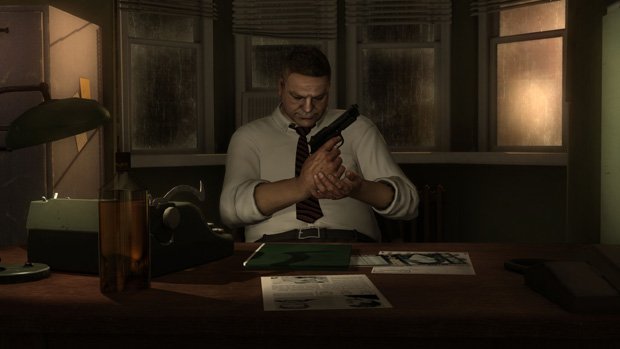
It’s not the evolution of game narrative
Fact. However much Heavy Rain eschews the traditional A to B linearity of video game storytelling, the fact is that its stripped-down interaction mechanics make it much more an evolution of cinematic narrative than of video game storytelling. This isn’t a game where skills or problem solving will usually be required (more on that latter point in a bit). It’s a game in which you experience an unfolding story rather than play through it in the traditional sense.
Imagine a film in which you can reach in and touch the world you’re watching, or hear how certain events make the characters feel on a personal level. That’s what you’ve got in Heavy Rain. It’s a movie which uses interaction in order to create a greater connection and sense of empathy within its audience.
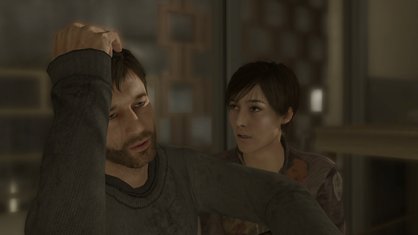
And in that respect, it works fantastically. You’ll feel a strong personal bond - even a relationship - with the game’s better-written characters. Their personal quirks and foibles become believable and reassuring and the sense of who they are as people is unquestionable.
Similarly, the already stunningly-rendered game world becomes all the more real for a bit of hands-on exploration. It’s amazing how much the mundane actions of digging through a fridge, taking a piss or even changing a baby’s nappy can add to your bond with the story, particularly when they’re completely optional.
The more visually cinematic Heavy Rain becomes, the more obvious its design philosophy is. Watching a split-screen image of a film protagonist struggling to escape a building while the enemy prepares to enter would be a tense experience already, but when the hero’s fate depends on your physically tense button mashes and stick flicks, it’s suspense on a whole new level.
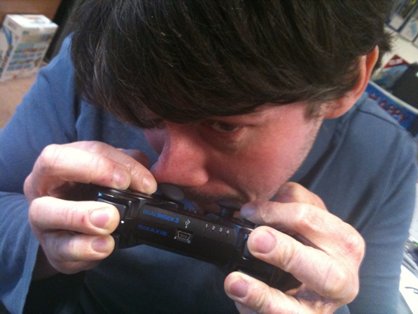
Above: The perilous results of Heavy Rain's more demanding QTE inputs
The QTE commands frequently even approximate the physical actions your character has to make in the game world, further adding to the immersion, even if a few become so unnecessarily convoluted that you can occasionally run the risk of running out of fingers part way through. 'Augmented cinema' would probably be the best term to use to describe Heavy Rain, and as a sensory experience there’s nothing else like it around today.
It’s not an adventure game
Those of you hoping for a grand renaissance of the good old point-and-click are going to be disappointed. You see while Heavy Rain steadfastly follows the old genre trope of identifying and interacting with usable items and characters in the immediate environment, you’ll rarely ever have to think about what to do with them.
Rather than finding the right object to pass an obstacle, you’ll usually just investigate your surroundings until you find the element that moves the plot along. It’s no more taxing than eliminating the villagers with the filler dialogue in order to find the quest-giver in a JRPG. Need to find a route out of a locked room? Just fulfil the QTE requirements of each possible exit until you trigger the one that actually works.
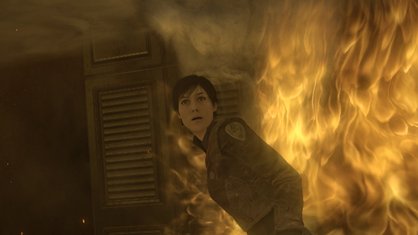
Heavily beset by the enemy? Don’t go looking for a hidden weapon. Just hit the right QTE buttons as the scene plays out and things will roll along of their own accord. Heavy Rain is all about soaking up the rich atmosphere and intrigue of an evolving story. If you can reconcile yourself with being more of a passenger than a driver, you'll find yourself dragged into proceedings very quickly.
When the rare problem-solving sections do arise, they’re welcome indeed, and very well thought-out. There’s no need for awkward video game logic in Heavy Rain. Just think like a real person in a real situation and the answer will present itself pretty quickly.
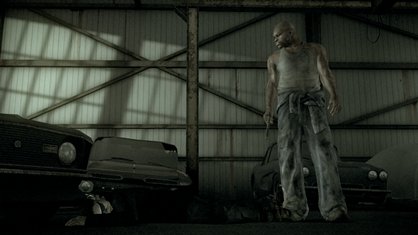
It’s strange how such an innocuous and simple design decision can make a game so refreshing, but Heavy Rain’s problem-solving is logical, smooth and natural in a way few games ever manage.
It’s not just a great big cut-scene
While you won’t play through Heavy Rain’s world in a traditional sense (don’t expect to manually aim a gun any anyone, or navigate the environment as kinetically as Nathan Drake) , it’s actually a good deal more involving than you probably expect.
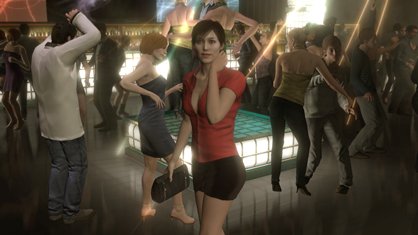
As you explore the potential of each environment you’ll have full manual control over your character. The control scheme is a strange blend of old-school Resident Evil and a driving game, in which you hold down R2 to walk in the currently-faced direction and use the left stick to turn your character in transit. Mercifully, all directions are relative to the player, not the character, and the fact that you only need to tap the left stick rather than hold it means that the system works very well in handling Heavy Rain’s automatically switching camera angles with the minimum of fuss.
The one drawback is that movement can be sluggish, with human beings feeling a little like dump trucks at times, while twitching around like over-zealous ballerinas at others. Certainly, there was one occasion in which we inadvertently sent our protagonist off on a whole new story thread just because we got arrested while spectacularly failing to manage to cross a road. Hardly heroic.
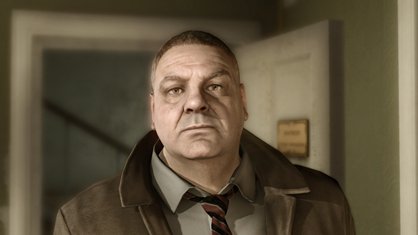
As for the numerous hands-off sections, in which your character’s actions play out automatically and your QTE inputs simply dictate the success or failure of a certain action, they feel much more immediate than you might expect. Thanks to some sharp cinematography, canny direction and the illusion of spontaneity afforded by the branching action scenes (even a successful fight can take two or three different directions before you win), Heavy Rain’s combinations of button taps and stick tweaks can feel as gratifying as lining up a headshot in real time.
It’s not as mature as it thinks
Disappointment time. For all of Heavy Rain’s much vaunted pretensions of being the first great mature video game narrative, it fails. Hard. The fact is that if you strip away the beautiful imagery, the stirring musical score, the clever camera angles and the expressive facial animations, what you’re left with is a fairly gratuitous, schlocky and unoriginal story, packed with clunkily presented excesses which at times veer towards the comical.
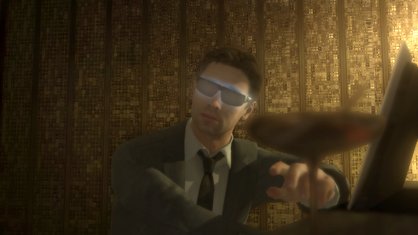
The central plot is little more than the Saw franchise blended with the visual style of Se7en, and there’s barely a single scene or story element that isn’t built around a hoary old crime movie cliché you can instantly relate to a million hoary old crime movies. The corrupt police chief. The world-weary but big-hearted private detective. The brilliant, ideosynchratic, but mistrusted FBI agent. The crazy, out of control son of the sinister millionaire. The ballsy reporter. The sleazy nightclub owner. They’re all here in force, but they’re just the tip of an iceberg which comes close to sinking the whole narrative ship.
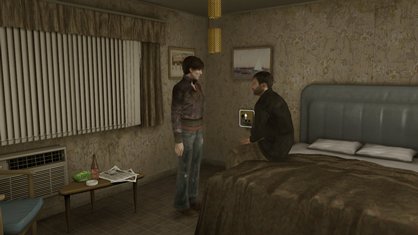
Some characters are fleshed out and genuinely relatable, while others are as one-note and unsympathetic as they come. Troubled father Ethan in particular, who is charged with taking the brunt of the story’s emotional weight, starts out well with a few genuinely affecting scenes. But by the mid-point of the game he becomes such a flat and undeveloped non-entity that that it's disturbingly hard to care about what should be a genuinely distressing storyline.
If you need a summation of Heavy Rain’s immaturity, check out this video comparing the two shower scenes in the game. Director David Cage may claim he only uses nudity as a character development device, but boy is that statement about to become pretty hilarious.
Ethan (male) is straight in and straight out, with only a brief arse shot and a quick towel dry as an early tutorial in using the Sixaxis. Madison (female) can be manually stripped at any speed you wish, goes full frontal whenever possible, seems to have her own cameraman specially trained in close-up boob shots, can have her shower scene extended twice by ignoring a QTE prompt, gets more towel drying (which by this point in the game is far from a tutorial), and then has to be manually clothed (again, at a speed of your choice). Or you can just leave her naked and ogle for a while if you feel like it.
Heavy Rain is a movie alright, but frankly, it’s not a very good one. Which leads us onto our last and saddest point.
It’s not very well written
In fact at times it’s pretty bad. At others, it’s downright embarrassing. Let’s ignore for a moment the clichéd characters and scenarios. Let’s ignore the gratuitous excesses. Let’s ignore the occasionally over-ripe dialogue. Let’s ignore the sometimes trite imagery. Hell, let’s even ignore the clumsily-written ‘ominous’ forshadowing scene at the start; the one so sledgehammer-blunt that it made us laugh out loud. Aside from all of that, Heavy Rain’s biggest failing is that the plot is just broken.
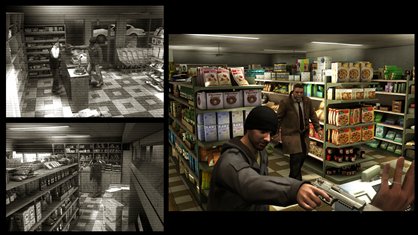
If you’re the sort of person who played through Modern Warfare 2 and didn’t care (or notice) that it made no sense, you might be okay with it, but as a game constructed by and for the strength and malleability of its story, Heavy Rain’s narrative failings cause the whole show to fall down once you start to think about them t0 hard. It's like a heavily obese Megan Fox. Potentially great beauty stretched to the point of implausibilty by a lack of grace or restraint.

Most obviously, there’s a stinking great plot-hole late in the story which succeeds in nothing less than pulling the whole climax apart (pro writing tip: if a key dramatic moment relies on two characters knowing each other, try to make sure that they know each other, or have at least become aware of each other’s existence before said scene occurs).
But there are gaping logic voids littered throughout the whole damn thing. Would it really be possible to commit a major crime in the police station you work in – a crime easily tied to you with minimal thought required from your supposed crime-solving colleagues – and then just get back to work as if nothing had happened? Is it plausible that even a corrupt media-whore of a police chief would decide to scapegoat an arrest target based on no actual evidence or thought to how he’s eventually going to build a case in court? And how the hell does a character end up in another’s apartment without a key?
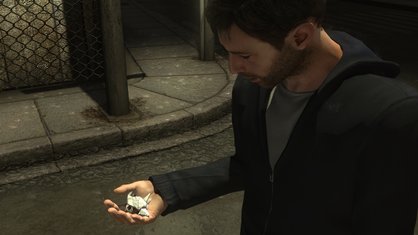
Occurrences like these are plentiful throughout Heavy Rain, and are endemic of an approach to plot which seems content to simply squeeze in dramatic moments with no thought to the wider context of why or how. And it only gets worse as the story gathers pace. As the mystery unravels, key developments are built around co-incidence, implausible jumps of logic, and bullshit theories that don’t hold together at all but turn out to be true regardless, just because it’s more convenient that way. The red herrings can be nonsensical to the point of presenting impossible and unexplained scenarios in aid of implying false guilt, and at one stage the game pulls a trick so cheap you might end up feeling cheated come the resolution.
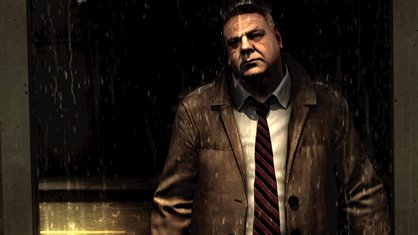
You might not come across all of Heavy Rain's broken plot elements during your first play through, but the more you see of the overall story possibilities and the more you think about the events unfolding, the more affronted you'll feel by it all. Some might give the game a free ride because of the supposed complexity of its narrative pioneering, but in a real sense it does nothing with its branching structure more clever than the writers of Choose Your Own Adventure books have been doing for twenty years. For primary school kids. While actually making their plots work.
But the frustrating thing, the really really frustrating thing, is that it initially gets away with a lot of this for exactly the same reason games have always got away with duff storytelling. The interactive elements pull you through the experience regardless of all the crap. The way in which Heavy Rain presents its story makes it an undeniably engrossing and involving experience in the same way that shooting your way through Gears of War makes you forget all about the knuckleheaded bravado attached.
And that’s just ironic. Because instead of eliminating the traditional evils of and excuses for video game storytelling, Heavy Rain simply repeats them in a classier-looking way. And despite its gloss, style, genuinely affecting moments and pervasively dense atmosphere – actually because of them – those failings become more obvious than they’ve ever been.
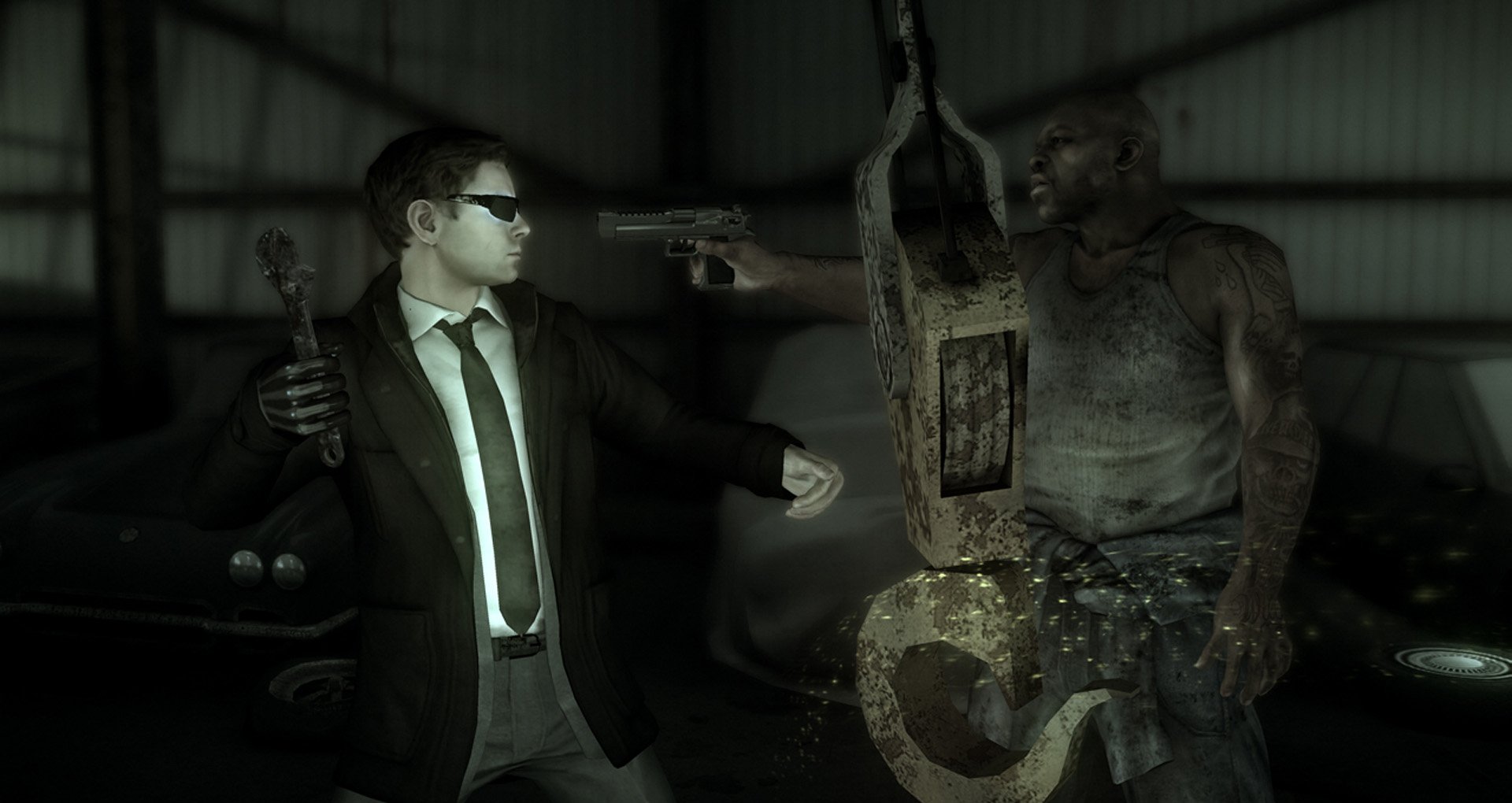
Mass Effect 2? No.
Both games have player choice and epic storytelling as their raisons d'etre, but BioWare's game is by far the more satisfying. More coherent, less pretentious, better acted and with choices loaded with more real consequence that Heavy Rain's, it's easily the more heavyweight and affecting game.
More info
| Genre | Adventure |
| Description | Heavy Rain is an admirably ambitious creation capable of engrossing the mind and engaging the emotions like few games that have gone before. Visually and aurally it's a decadent feast for the senses, but its frequent descents into ham-fisted schlock and downright broken storytelling ultimately make it a clumsy case of style over substance. It's a likeable mess if you don't think too hard, but nevertheless, a mess it remains. |
| Platform | "PS3" |
| US censor rating | "Mature" |
| UK censor rating | "16+" |
| Alternative names | "Heavy Rain: The Origami Killer" |
| Release date | 1 January 1970 (US), 1 January 1970 (UK) |
